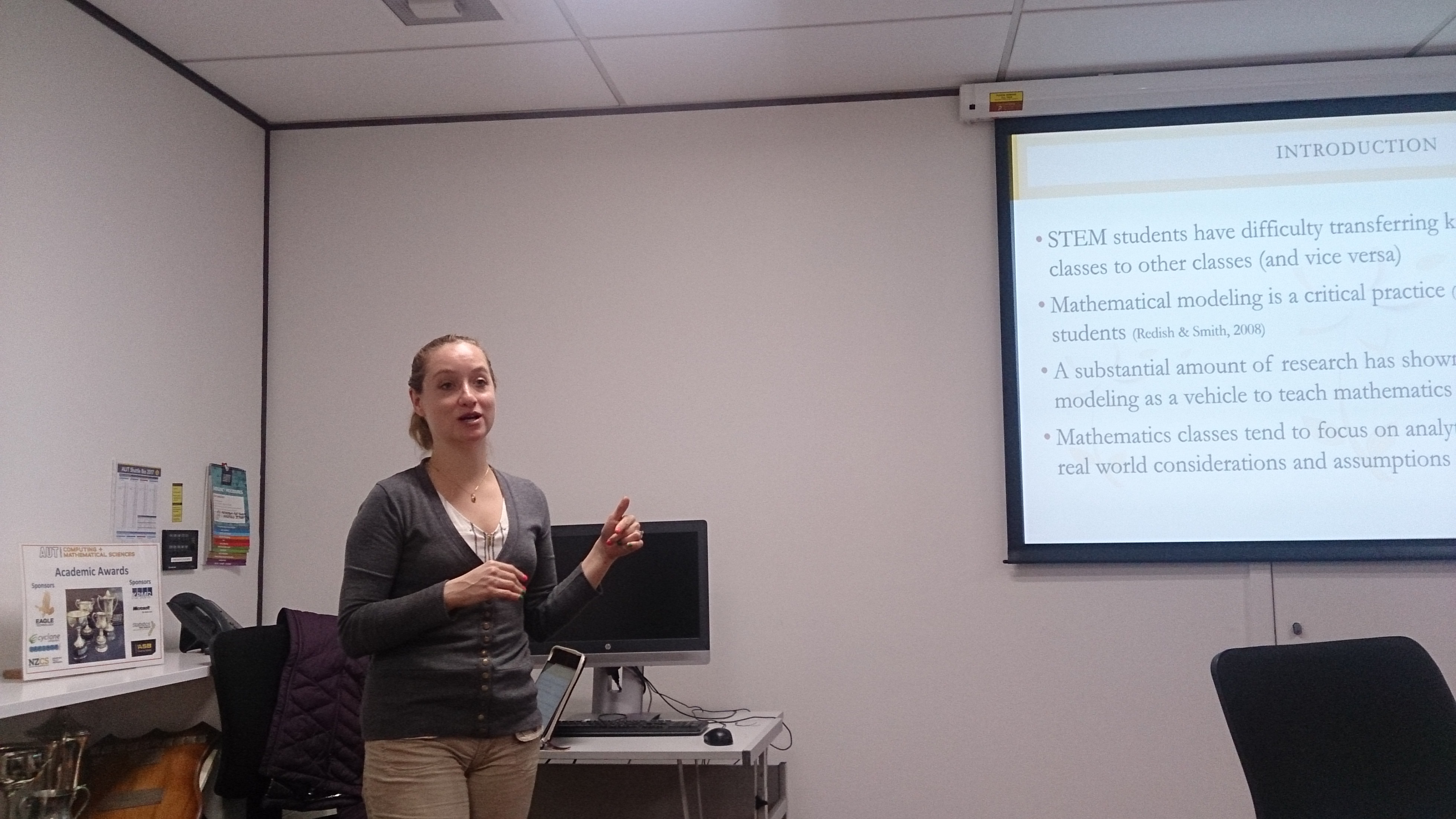6 July 2018: Seminar by Jennifer Czocher, Texas State University, "What are some benefits of teaching differential equations with a mathematical modelling approach?"
STEMTEC Seminar Series, 2018
Where: WT121 Note different room
When: Friday 6th July 2018, 11am-12
What are some benefits of teaching differential equations with a mathematical modelling approach?
Jennifer Czocher
ABSTRACT
In this talk, I report on a medley of qualitative, quantitative, and mixed-methods studies that touch
on cognition, affect, and achievement of undergraduate students studying differential
equations. Four studies conducted in a laboratory setting, a traditional classroom setting, a reform
classroom setting, a national extracurricular competition showcase a variety of methodologies that
can be employed to generate practical, gains-oriented recommendations as well as to develop theory
to guide future research endeavours. Knowledge of differential equations content is appreciated, but
not necessary to enjoy this talk!
Suitable for: Mathematicians interested in results from or research methods in mathematics
education, mathematics educators, doctoral students.
Emphasis on: Methodologies and results with attention to the emerging distinction between pure and
applied educational research (knowledge of differential equations content is not necessary).
For queries on the seminar series, contact Robin Hankin, rhankin@aut.ac.nz
Biography
Dr. Jennifer Czocher is an Assistant Professor of Mathematics at Texas State University. As a 2018
Australia Endeavour Fellow, she is working closely with faculty at Australian Catholic University
(Ballarat and Melbourne) on improving teaching and learning of mathematics through mathematical
modeling. Her research interests include students’ mathematical thinking and cognition, research in
undergraduate mathematics education (RUME), the impact of mathematical modeling tasks on
students’ mathematical thinking, and how mathematical reasoning supports STEM education. She also
enjoys thinking about epistemological and philosophical issues in mathematics education. She is
currently studying how individuals learn to use mathematics as a representational system and the role teacher questioning may have in helping individuals coordinate their mathematical and non-mathematical knowledge.
